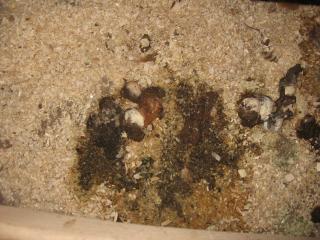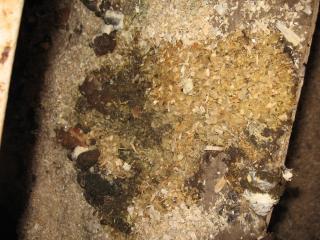One of the reasons that a mild wormer is recommended first is that roundworms attach to the intestinal lining and mucus linings of the chicken's innards. When they die, they release their hold and can cause bleeding. If there is a heavy infestation the chicken can bleed to death. A mild wormer kills fewer, reducing the risk of that heavy bleeding. The second wormer will kill the rest of the worms and the time between gives the bird a chance to rebuild its strength. If you don't know the state of your flock err on the side of caution and do two seperate wormings.
This is what we do with all of our other farm animals, from goats to horses.
I'm kind of late to this post, but thought I would still post it for those that might not know the reasoning.

This is what we do with all of our other farm animals, from goats to horses.
I'm kind of late to this post, but thought I would still post it for those that might not know the reasoning.






